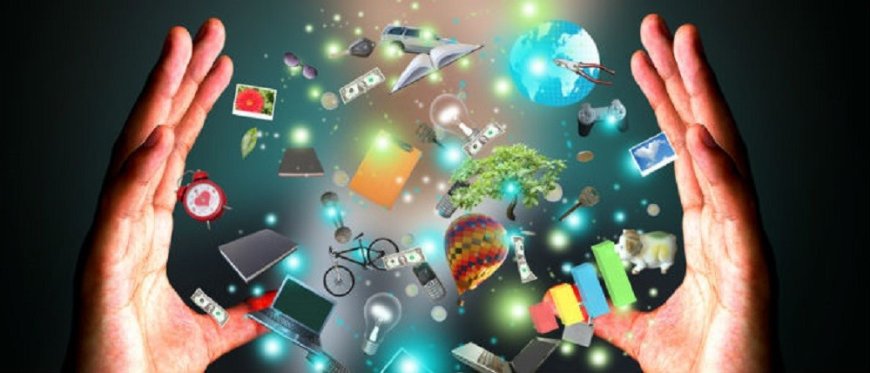Man in the modern information space
an integral part of everyday life and a prerequisite for employment and a successful career. Man in the modern information space.

The twenty-first century is the century of information and telecommunication technologies. Today, computer literacy is an integral part of everyday life and a prerequisite for employment and a successful career. Man in the modern information space.
Receiving mail a minute after sending the letter, paving the best way to navigate through information from navigation devices, virtual media, social networks for communication, distance education, use of online library resources, remote work on the Internet. Having easy access to millions of terabytes of knowledge has made it easier for us to develop ourselves intellectually. Some 20-30 years ago, all these things seemed fantastic.
Cash payments are a thing of the past. Today, payments are available not only through Internet banking from credit and debit card accounts, but also through various types of "Internet money" - network currencies.
There are already analytical medical complexes that are able to independently perform a number of measurements in automatic mode and interpret measurement data without medical intervention, as well as transmit information to the information base of the medical institution.
It is difficult, if not impossible, to imagine a person who does not directly or indirectly use information technology. Computers and electronic gadgets have become firmly entrenched in our lives and changed it. Technological innovations that improve the quality of everyday life appear and are developed every year. With the advent of such technologies, our lives have become much more comfortable. There is a tendency to increase the versatility of things around a person. Mobile phones, for example, have ceased to function only as a means of communication - their functionality has grown almost to the level of personal computers.
Gadgets are being developed that will control real-time physiological parameters of a person; security systems that work with personal information through fingerprint access, sensors that are used for tracking. Smart home technologies have appeared - remote control of housing infrastructure. An increasing number of home appliances have a built-in processor and can connect to other gadgets and set their own algorithm, such as a robot vacuum cleaner. But there is also a negative factor of the technological revolution - man is increasingly dependent on technology and technologies and can not physically and psychologically resist the temptations of scientific and technological progress.
Obviously, the latest computer and information technologies, and especially networking, have a significant impact on human life, but even more so this impact extends directly to the brain itself, which is accustomed to working in an intensive multitasking mode. Scientists suggest that increasing the amount of information and accelerating its processing by humans can have a detrimental effect on the development of human mental abilities. At the moment, there is a danger that people are gradually moving to maintain brain activity by technological means of progress by processing the information they draw from the global information base - the Internet. In turn, the number of innovative ideas and independent mental processes is reduced, and humanity is mostly a passive information consumer.
Must Read: How to foster an optimistic attitude in children?
The person from a huge amount of information and lack of time for processing of its huge volumes, is overloaded and ceases to think logically therefore there is a so-called information neurosis which is already observed in medical practice of psychiatrists of many countries of the world.
The emergence of social networks and information exchange services has revolutionized interpersonal communications, erasing the spatial and temporal framework in people-to-people contacts. But with the advent of social networks, the number of people who have undergone virtualization of consciousness has increased with the inability to adequately assess the world around them and themselves as biological and social beings, and this is a negative aspect of information technology.
Social networks have contributed to the fact that a person ceases to feel the desire to communicate in the real world with real people, getting used to living in their own microworld with the presence of only virtual interlocutors. Gadgets both support and disrupt the spiritual and emotional connection between people.
But still the era of information technology has come, and humanity will not be able to give up its benefits due to dynamic growth and the desire for a long, comfortable and safe life. Therefore, it is necessary to realize that the development or regression of human civilization with the help of information technology depends on the number of positive or negative forms of impact of these technologies on society.
In addition to the natural habitat of man, there is objectively an information environment of his residence, the role and importance of which is constantly growing as the further development of the media and mass communications. This environment has an active impact on humans. The harmonious development of the personality and a high level of mental health will be ensured when a person from childhood will live and develop in a favorable, psycho-hygienic information environment.
Today, scientists and experts raise the question of the need for information ecology - a science that studies the patterns of influence of information on the formation and functioning of man and humanity in general, health, as a state of mental, physical and social well-being, develop measures to improve environmental information environment.
The task of information ecology may include the development of the basics of ecological and hygienic information behavior, scientific substantiation of sanitary measures for the organization of information networks and processes, hygienically sound production, distribution, consumption, storage and reproduction of information. It is necessary to create a scientific justification for the hygienic standards of information, information environment, information networks and processes, so that modern technologies benefit consumers and minimize the negative impact.
